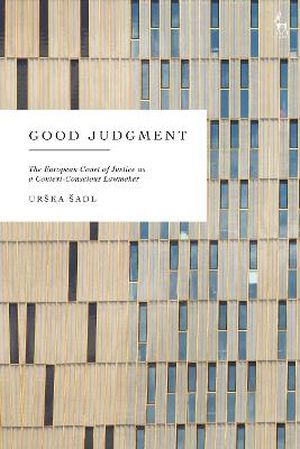
Courts are context-conscious. They solve legal disputes with societal impact in mind, using interpretive tools and procedural means. This book develops concepts and methods for a systematic and legally informative analysis of this complex process. The evidence delivered prompts a conversation about the authority courts have to change the law. The analysis focuses on the European Court of Justice and its free movement case law. The framework and theory, however, are relevant to courts and case law everywhere. This is a compelling and intriguing examination of the ECJ and its shaping of a key tenet of EU law.